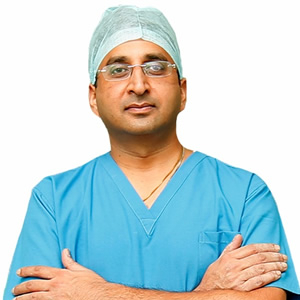Babies and Children get Cataract too!
Cataracts by popular understanding are the prerogative of the old. However, Cataracts are quite common in infants and children as well, except that the causes are different and it is even more critical for surgery to be performed early! The various causes of Cataracts at birth include hereditary causes, part of Genetic Syndromes, intrauterine infections like Rubella and birth trauma. They are also caused due to nutritional deficiencies in the mother during pregnancy.
Read moreThe Human Eye: Myths & Facts
Age-Old Myths
Whether it is about how eating carrots benefits vision or that sitting too close to the television set spoils the eyes, each one of us has heard innumerable “facts” about the human eye. But have you ever stopped to wonder whether there are myths or are actually facts?
To help you separate fact from fiction, here is a list of some interesting myths and facts about our eyes.
Read moreDiplopia(Double Vision)
What is Diplopia (Double Vision)?
Double Vision (Diplopia), much like the name suggests, is when you see double or two images instead of one.
There are two types of double vision - Monocular and Binocular. Monocular double vision affects one eye and Binocular double vision affects both your eyes. At times, double vision can be temporary.
All about Vitrectomy Surgery
What is Vitrectomy?
Vitrectomy is a surgical procedure that is done to remove and replace either some or all of the vitreous humour (a gel-like, transparent substance that fills the eyeball behind the lens).
Childhood Cataract
Describing a Cataract
The transparent structure located behind the pupil of the eye is the lens. When a cataract affects the eye, it clouds the lens and makes it less transparent.
A cataract prevents light rays from passing through the lens and focusing itself on the retina (tissue at the back of the eye).
A Unilateral Cataract is when one eye gets affected and Bilateral Cataract shows its effect on both the eyes.
Effect of Screen Time on the Eyes
Effect of Screen Time on the Eyes
Computer screens have always been the proverbial double edged swords where on the one hand they help us with all sorts of activities from business to entertainment from health consultations to online courses from stocks and finance to online shopping, while on the other hand they have a major role in creating health issues especially for the eyes.
Read moreHow to reduce Eye Strain while using Mobile Phones, Laptops, or watching TV?
How to reduce Eye Strain while using Mobile Phones, Laptops, or watching TV?
In these testing times where we are all under lock-down for our personal safety from Coronavirus, screen time has significantly increased in our lifestyle. With changes in work from home rules, schools, and education norms, the entire family has increased their use of digital screens in their day to day lives.
Read moreMyths and Facts about Eye Donation
Myths and Facts about Eye Donation
Eye donation is the most noble act done by anyone. Without eyes life can become worthless. Hence we must promote eye donation so that the blind may may see after one is gone.
Read moreOnline Classes, Screen Time and Kids
Why increased screen time is harmful?
- Risk factor for myopia
- Causes behavioural issues – child becomes irritative and shows temper tantrums
- Irregular sleep pattern
- Loss of social skills – does not mix with the surroundings
Avoid Eye Infections this Monsoon!
Monsoon is equivalent to cool weather, hot pakodas, long drives and enchanting greenery. However, the season is also closely associated to a host of water, vector and foodborne diseases including Flu, Diarrhea, Malaria, Leptospirosis & Jaundice. Patients with various illnesses related to contaminated water & food, vectors (flies & mosquitoes) are also commonly seen. Steep spike is also seen in eye infections during this season! High humidity levels
Read moreCorneal Blindness
What is Blindness?
Blindness is a loss of eyesight that is caused when the optic nerve, the part of the brain responsible for vision or any portion of the eye is damaged.
Blindness can either be permanent or temporary.
Corneal Ulcer
What is Corneal Ulcer?
A Corneal Ulcer or Keratitis is an open sore on the cornea (the clear outer layer in front of the eye that covers the iris and the pupil).
What Causes Corneal Ulcers?
Normally, an eye infection or eye disorder is responsible for the birth of corneal ulcers. Following is a list of these various infections and disorders
Busting 9 Myths about Cataracts
False Information can be Injurious to Health
We are surrounded with information all the time. And it is quite plausible that some of it can be untrue. We tend to choose believing misinformation over questioning its accuracy.
Information concerning health oftentimes gets entangled in this web of inaccuracy as well. This can be rather dangerous because it could lead to bigger health problems.
Eye Care for People with Diabetes
Multisystem disorder
Diabetes affects various organs of our body especially eyes, kidneys and nerves. Any age group can be affected.
Eye involvement in Diabetes
In comparison to people who don't have diabetes, diabetics have a greater chance of developing eye complications and blindness. Every part of the eye is affected. Following are various eye conditions caused due to diabetes.
How to Choose the Right Intraocular Lens (IOL)
What are Intraocular Lenses?
Your natural eye lens turns blurry following the removal of cataract. Intraocular Lens (aka IOL) is implanted in the eye to restore vision to the optimal.










